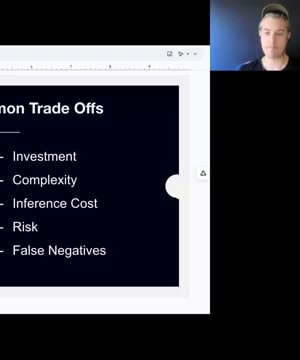What are typical trade-offs?
Sources:
Typical trade-offs span across various domains, from technology to business strategy. Here's a summary of common trade-offs discussed by experts:
Performance vs. Investment
In AI, enhancing performance often demands significantly more resources. Each step-up in performance might require ten times more investment. Deciding how much to invest based on the desired performance is a crucial trade-off 1.
Accuracy vs. Complexity
Accurate results can be achieved by increasing complexity. However, the added complexity often leads to higher development costs. This trade-off is evident in AI where complex workflows can enhance accuracy but require substantial engineering efforts 1.
Value vs. Risk
Higher-value tasks generally come with increased risk. Companies need to balance these by starting with low-risk tasks while keeping in mind that this might cap potential value 1.
Convenience vs. Cost
For businesses like banks, extending service hours increased convenience but came at a significant cost, which had to be offset by offering lower interest rates on CDs. This kind of trade-off is essential in business strategies where companies decide on their market positioning 2.
Feature Quality vs. Development Time
In software development, achieving high fidelity and including smooth transitions may require additional time. Streamlining features to get products out faster often means cutting down on some detailed enhancements or features 3.
Long-term User Benefit vs. Short-term Business Objective
In product development, prioritizing long-term user benefits over short-term business gains is crucial. For instance, YouTube prioritizes building the best product for users even if it means delaying immediate business benefits 4.
Centralization vs. Autonomy
In large organizations, centralizing processes can improve overall efficiency but may reduce individual team autonomy. LinkedIn faced this trade-off in optimizing job seeker and recruiter experiences by centralizing their solutions 5.
Understanding these trade-offs helps in making strategic decisions that align with long-term goals while managing resources effectively.
RELATED QUESTIONS

